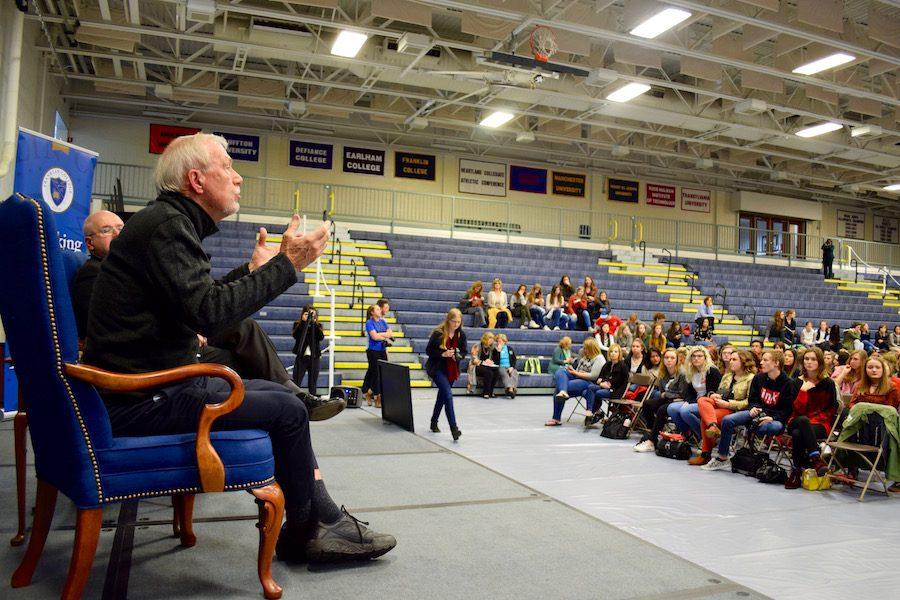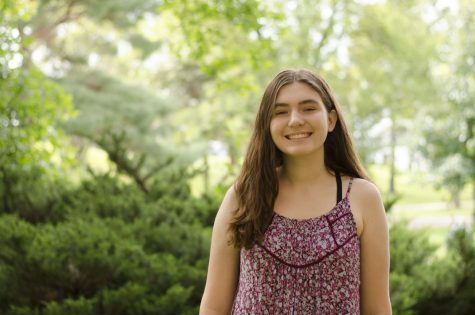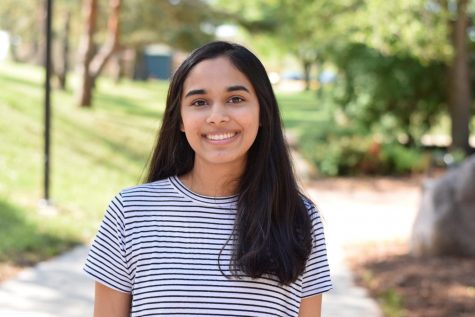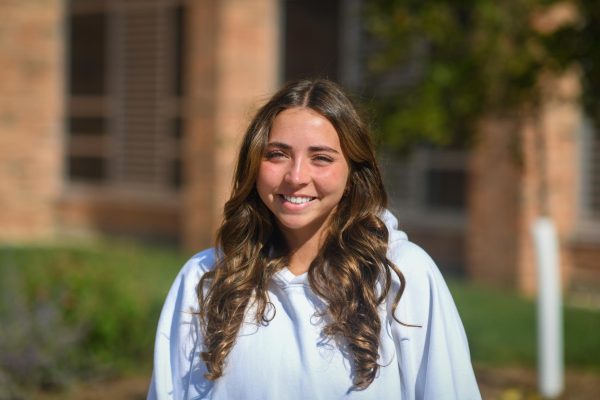“Spotlight” reporter visits national journalism convention
West Side Story staff visiting Indianapolis for the JEA/NSPA journalism convention attended a live recording of NPR’s “No Limits,” with the Boston Globe’s Walter “Robby” Robinson, reporter played by Michael Keaton in the film “Spotlight.”
Boston Globe editor and reporter Walter “Robbie” Robinson speaks to high school journalism students about his experience in investigating the report regarding priests sexually assaulting children.
November 12, 2016
In 2002, The Boston Globe’s editor and reporter Walter “Robby” Robinson and other reporters, all part of the “Spotlight” team from the publication, began publishing the findings of an extensive investigation on Catholic priests in Boston, Massachusetts. The team of journalists uncovered, in total, more than 250 priests were discovered as sexual predators. The discovery of their sexually abusing children stemmed from an original investigation of a single pedophilic priest.
At the JEA/NSPA national high school journalism convention, West Side Story staff visited Indianapolis, along with hundreds of other high school publications. On Nov. 10, the staffers were a part of the crowd of 500 witnessing a live recording of NPR’s “No Limits” radio show, with an interview with Robinson by host John Krull, at Franklin College. Robinson discussed the process of the investigation of priests and the making of the Emmy-winning film inspired by the project, “Spotlight,” where Robinson is portrayed by actor Michael Keaton. Robinson explained what the effects of the team’s findings about the sexual harassment were, as well as how he and other reporters came about them.
“The Catholic church hasn’t recovered” from the scandal, he said. Before the information and documents were released, one of the most accepted parts of life, religion, had not come into questioning such as that which the investigation introduced. “Editors [of news sources] had too much deference to the Catholic Church,” which led to Robinson advising the young journalists and students to question some of the more “obvious” aspects of their lives.
“We can’t just sit on our hands, we have to make use of our freedom,” he said. “The public has the right to know.”






